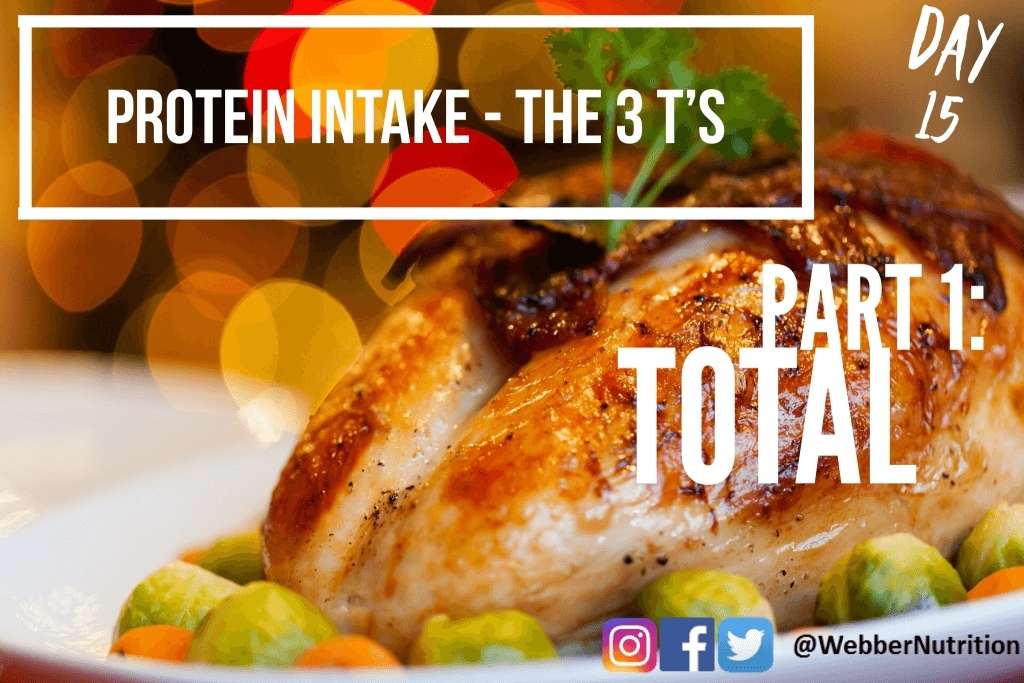Nutrition Advent Calendar – Day 15
Protein intake – the 3 Ts:
Part 1: Total
Over the next 3 days I’ll be looking at dietary protein and the 3 Ts you should focus on to maximise its effects on increasing muscle size, strength and function.
The most important of the 3 Ts is Total, or how much protein you need each day. The RDA for protein for most sedentary individuals is 0.8g/kg/body mass (bm), however literature supports that anybody who regularly undertakes resistance or endurance exercise requires more protein than their sedentary counterparts.
Resistance trained athletes habitually consume very high protein diets and can eat anywhere between 2-2.5g/kg/bm protein per day. For a 100kg man, this means eating approx 250g protein every day, the equivalent to 8 chicken breasts!
Endurance athletes do not need as much protein but are recommended to consume between 1.4-1.8g/kg per day.
Athletes who compete in high intensity intermittent sports, e.g. football, tennis, hockey, require enough protein to support both endurance and strength/power based training, in which 1.8-2g/kg protein is recommended to promote training adaptations.
Consuming protein after training is well-known to support recovery, by stimulating muscle protein synthesis (MPS) to repair damaged tissue and promote training adaptations. 20g protein is sufficient for near-maximal MPS, with 40g offering slightly better results, but may only be beneficial for larger athletes (>100kg).
Take home messages:
Consume 20-40g protein soon after training based on your size & sport, as part of a daily intake of 1.8g/kg protein to optimally stimulate MPS so long as calorie intake is matched or increased for hypertrophy gains.
For fat loss goals, increasing protein intake to 2-2.5g/kg can support the retention of lean muscle mass, with leaner and larger athletes requiring the upper limit to support their needs.






